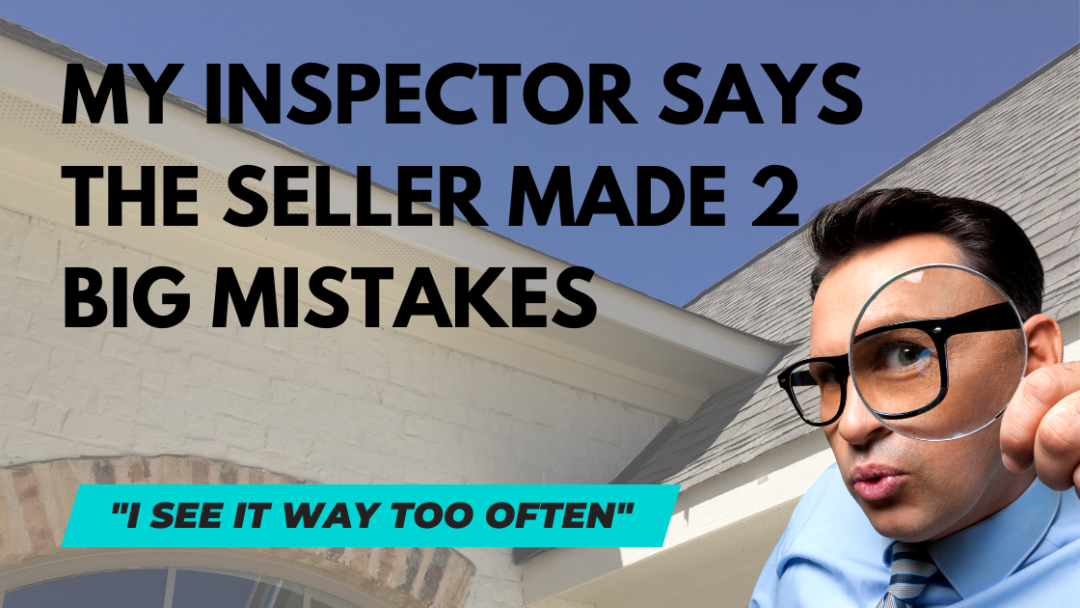Estimated reading time: 3 minutes

Mistake #1
When the seller bought the house, they didn’t set aside money for home repairs.
Having spent the last 20 years as a home inspector, I can tell when a home suffers from neglect.
Failing to set aside money for home repairs can have serious consequences. When small problems are left unaddressed, they usually become more significant and costly. For example, a small roof leak may seem like a minor inconvenience, but if left unrepaired, it can lead to significant damage and potentially harm the structure. Water damage from a leaky roof can affect not only the roof but also the walls, ceilings, and other structural components. In addition, mold and mildew can develop from moisture.
By setting aside money for home repairs, homeowners can take care of issues as they arise and prevent them from turning into major expenses. This can save you money in the long run, as addressing problems early on can often be more cost-effective than waiting until the issues become more severe. It’s also a good idea for homeowners to set aside money for emergencies like natural disasters. This can help protect against financial burdens and ensure homeowners have the funds to pay for necessary repairs or replacement items.
Mistake #2
The seller didn’t properly maintain the home’s systems and appliances.
Proper maintenance is essential for the longevity and efficiency of a home’s systems and appliances. By performing regular maintenance tasks, homeowners can ensure that their home runs smoothly and efficiently, preventing small problems from becoming more extensive and costly.
Some examples of maintenance tasks that keep an inspection report short include:
- Changing the furnace filter: A dirty furnace filter can reduce the furnace’s efficiency and cause it to work harder, leading to higher energy bills. Homeowners should aim to change the furnace filter at least once every three months or more frequently if the furnace is being used heavily.
- Cleaning the gutters: Clogged gutters can cause water to overflow and potentially damage the home’s exterior. Homeowners should clean their gutters at least twice a year or more often if they live in an area with many trees.
- Checking the smoke and carbon monoxide detectors: Regularly test them to ensure they are working correctly. Test the detectors once a month and replace the batteries at least once yearly unless you have the 10-year battery type.
- Maintaining the HVAC system: Regular maintenance of the heating, ventilation and air conditioning (HVAC) system can help extend its lifespan and improve efficiency. Homeowners should schedule regular maintenance with a professional, such as an annual tune-up by a licensed HVAC professional, to keep their HVAC system in good working order.
Keep off the inspector’s hot list by making timely repairs, setting a schedule for regular maintenance tasks, and sticking to it.
- - - - - - - - - - - - - - - - - - - - -